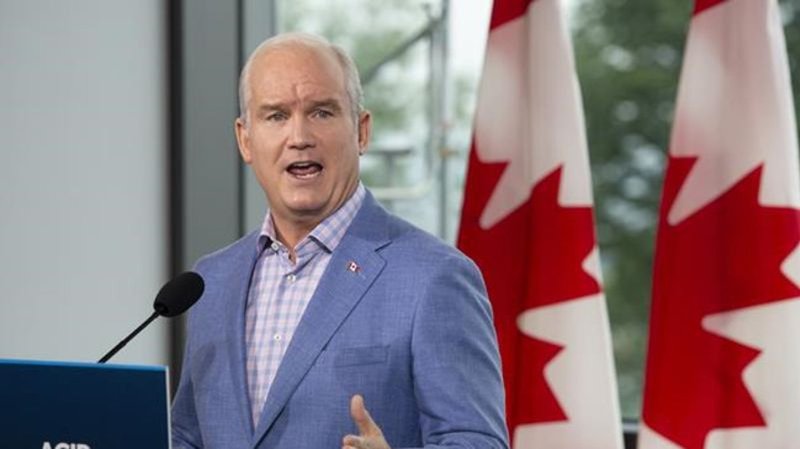
O’Toole pledges support for LGBTQ health as Trudeau questions commitment to community
OTTAWA — A Conservative government would respond to the needs of Canada’s LGBTQ community — including on the issue of “poppers” — says Erin O’Toole, despite skepticism from Justin Trudeau on the Tory leader’s commitment to queer priorities.
The recreational drug, a muscle relaxant used largely by men who have sex with men, requires a prescription and circulates in the grey market due to its limited availability, potentially jeopardizing users’ safety.
Conservative MP Michelle Rempel Garner recently sent a letter asking the federal health minister to study the benefits and harms of alkyl nitrites — the official name for poppers — amid a lack of attention that the lawmaker attributes to stigmatization of LGBTQ health care.
At a campaign stop in Ottawa, O’Toole said Tories will advocate for LGBTQ community members, including through requests to Health Canada, with an eye to creating a safer supply.


